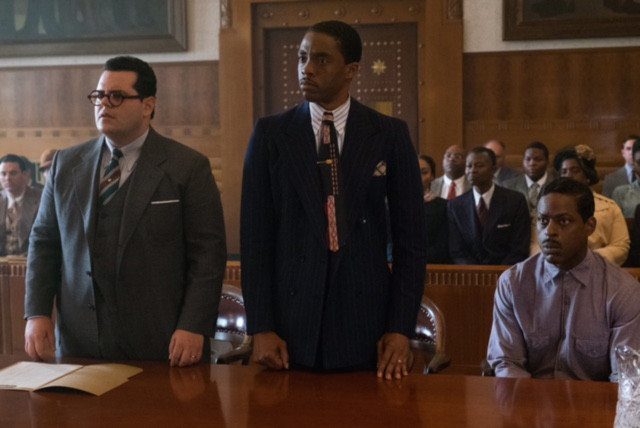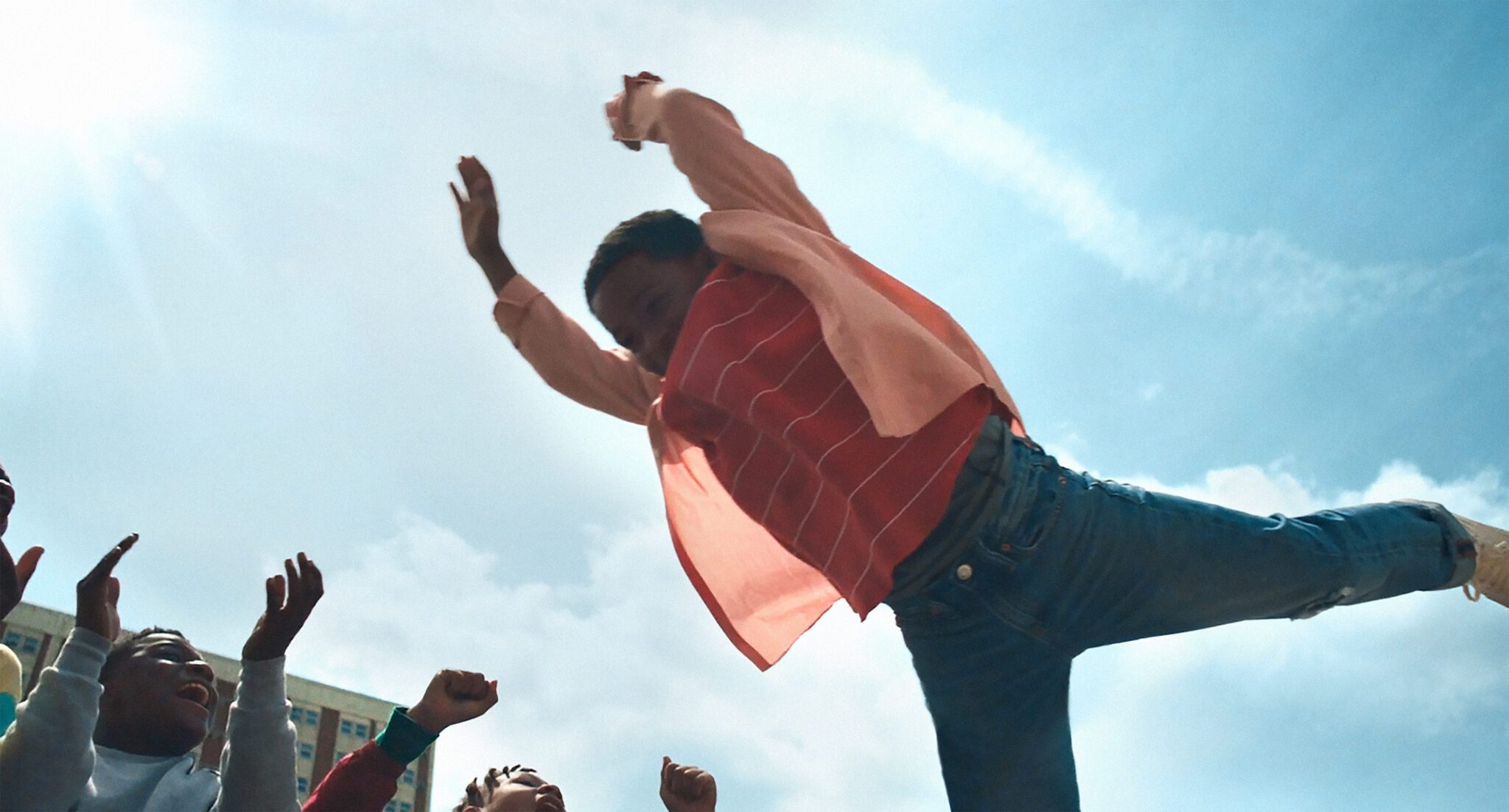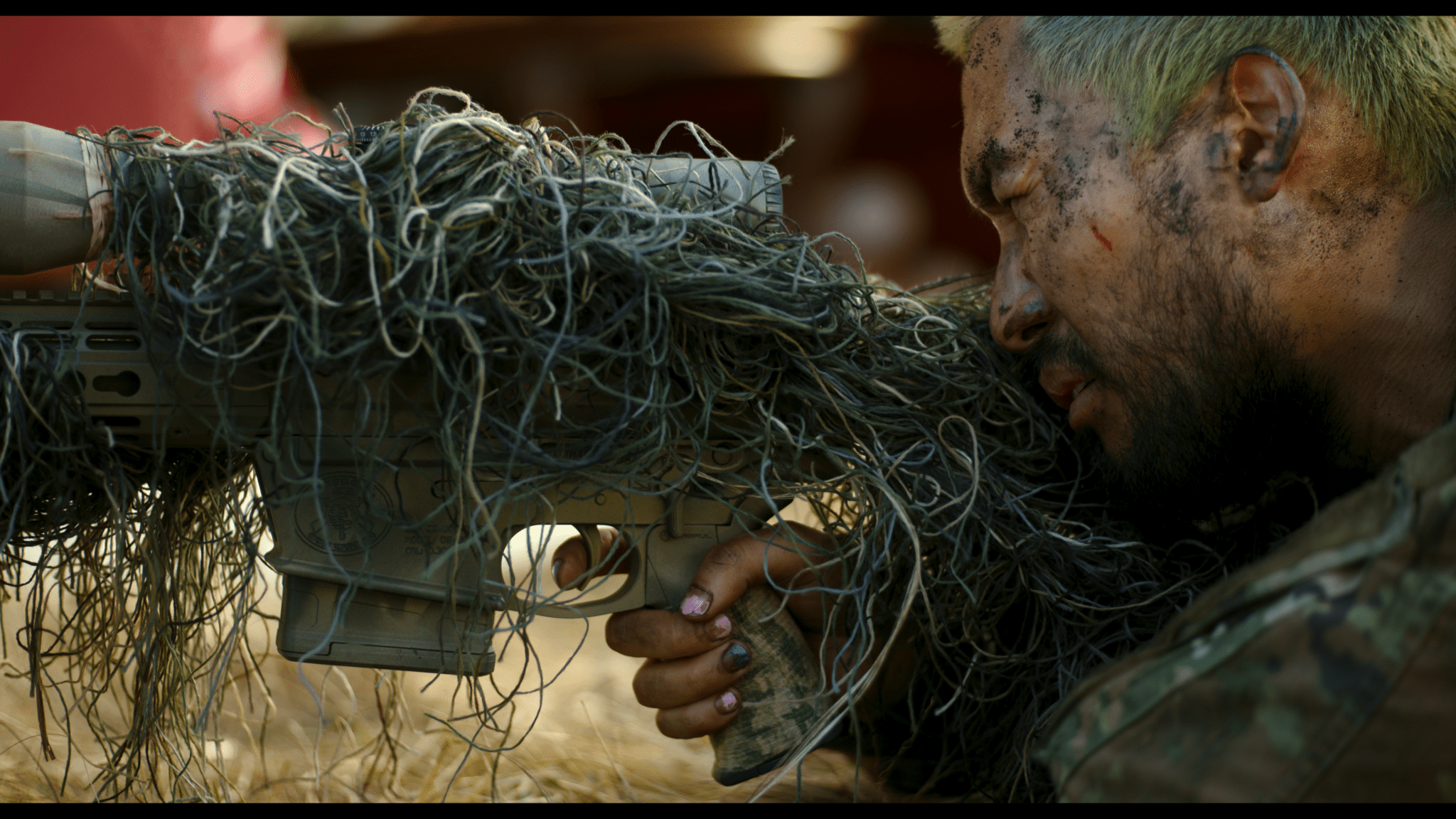 Before Thurgood Marshall was the first African-American Supreme Court Justice, he was a lawyer for the NAACP assigned to defend Joseph Spell against the charges of rape and attempted murder of a white woman. In Marshall, director Reginald Hudlin (House Party, Django Unchained) sets up Chadwick Boseman (42, Black Panther) and Josh Gad (Frozen, Murder on the Orient Express) to the heavy emotional lifting as two men in a courtroom with more than one life at stake.
Before Thurgood Marshall was the first African-American Supreme Court Justice, he was a lawyer for the NAACP assigned to defend Joseph Spell against the charges of rape and attempted murder of a white woman. In Marshall, director Reginald Hudlin (House Party, Django Unchained) sets up Chadwick Boseman (42, Black Panther) and Josh Gad (Frozen, Murder on the Orient Express) to the heavy emotional lifting as two men in a courtroom with more than one life at stake.
Before he would argue successfully Brown v. Board of Education and be appointed by President Lyndon B. Johnson to the Supreme Court, Boseman?s Marshall is sent by his NAACP superiors to Bridgeport, CT. He?s supposed to defend Spell (Sterling K. Brown) from the accusations of Eleanor Strubing (Kate Hudson), while the prosecution is represented by prosecutor Lorin Wills (Dan Stevens, Gad?s co-star in Beauty and the Beast). Problematically, the judge (James Cromwell) won?t grant that Marshall?s credentials be recognized out of state, so he?s technically nothing more than an overly-educated interested citizen.
Enter Gad?s insurance lawyer Sam Friedman, who is reluctantly dragged into the courtroom thanks to a deal Friedman?s brother made with the NAACP. He?s never handled a trial before, yet he?s drawn in by the passionate, maverick ways of the young Marshall. The two strike up a pleasantly amusing sense of rivalry and camaraderie, the black man and the Jewish man who are standing against the onslaught of racism and classicism in America? even the North.
It’s not fires I want, Sam; it’s fire itself.–Marshall
For the sake of the drama that Hudlin aims for with father/son team Michael and Jacob Koskuff?s script (for the record, the elder is a real lawyer), the audience struggles to understand the facts of the case involving Spell. Is he guilty? Is he innocent? Is he something in between, mixing sex, passion, race, and power in a way that the United States still struggles today? The answers are yes, yes, and yes, all depending on the momentary perspectives that the film unveils.
It would be ignorant to ignore the comedy that Boseman and Gad provide to an otherwise serious tale. At the end of the trial, a man?s life is at stake, and several other men may very well suffer other injustices along the way. But the two actors rather warmly embrace their characters? arrogance, ignorance, relationships, and self-doubt in a way that allows them to blend the narrative in a buddy flick kind of way.
Rather than paint the tale in black and white (pun intended), there?s significantly more to the way that the disrespect and abuse raining down on both Marshall and Friedman draws them together. There?s something intensely important about this film that?s more than the historical recounting of a famous groundbreaker and pioneer; this is a reminder that in the midst of our struggle, over race, politics, guns, gender, whatever – that we are in this together. And that there?s value in our similarities and in our differences.
All of this is driven by Marshall’s idealistic belief in the value of Spell, and in his frustration with the system. He’s charging in, with full-fledged defiance at a corrupt system, whether his client is guilty or not. He’s idealistic, naive, and powerful, and its a force of nature that will change the course of Friedman’s life and make him a true believer.
Marshall may be about yesterday, but it?s a warning or challenge for today.




